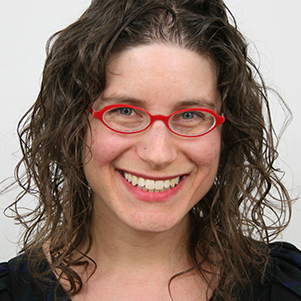*This post is part of ACSblog’s symposium honoring the 50th anniversary of Griswold v. Connecticut.
On Sunday, I’m getting married. As I prepare for this milestone and draft my vows, I’m thinking about our life together and the family we might someday create. About the promises we’ll make to support each other through life’s twists and turns. And about our partnership in decision making and family life.
In this moment, my mind turns to Griswold v. Connecticut, the 1965 U.S. Supreme Court decision first protecting the right of married couples to access contraception, which will mark its 50th anniversary on the day of my wedding.
These two events are inextricably linked — and not only because I’m a reproductive rights advocate. Griswold is foundational to my equality in our upcoming marriage. It guarantees my ability to pursue my chosen career (law) the same way that my fiancé pursues his (medicine). Griswold allows my career to be valued in our relationship and ensures that our joint decisions will further our professional choices. And it enabled us to spend the last 3 1/2 years in a wonderful romance exploring the potential of a life together — without being forced into parenthood before we are ready.
Griswold makes my marriage possible because it makes my life possible. Professors Reva Siegel and Neil Siegel have described Griswold as “offer[ing] women the most significant constitutional protection since the Nineteenth Amendment gave women the right to vote, constitutional protection as important as the cases prohibiting sex discrimination that the Court would decide in the next decade — perhaps even more so.” The Connecticut ban at issue in Griswold prohibited “[a]ny person” from “us[ing] any drug, medicinal article or instrument for the purpose of preventing conception.” This denied women control over their reproductive lives, affecting their ability to obtain an education, pursue their careers, become financially stable, and follow their dreams. As the U.S. Supreme Court put it three decades later in Planned Parenthood v. Casey, “The ability of women to participate equally in the economic and social life of the Nation has been facilitated by their ability to control their reproductive lives.”
Fifty years after Griswold, birth control is one of the most common health care services for women; approximately 99 percent of sexually active women in this country have used contraception at some point in their lives. Because of its centrality to women’s health and equality, the Affordable Care Act requires insurers to cover contraception in almost all health plans without extra out-of-pocket costs — an important advancement in affordable access to this vital health care service.
Yet access to birth control is increasingly under attack. Every day, it seems as though there is a new effort to diminish access to contraception and deny its place at the heart of modern life. Last month, the U.S. House of Representatives voted to block the District of Columbia from enacting a law that would protect women from being fired for using contraception. States are slashing funding for family planning. And the ramifications of last year’s shameful U.S. Supreme Court ruling in Burwell v. Hobby Lobby Stores, allowing some employers to deny women insurance coverage for birth control, are still playing out. Taken together, we see a pattern: These are efforts to isolate contraception from other forms of health care and stigmatize it, much the way that abortion has wrongly been isolated and stigmatized over the years. This undermines all women’s autonomy and equality, but low-income women with the fewest resources face the greatest obstacles to reproductive health care, and they suffer the most when attacks are levied.
Although it may be unlikely that we’ll return to the pre-Griswold years when contraception was illegal, “rights” are illusory without meaningful access. When women are denied insurance coverage for birth control, much needed funding is cut, and lawmakers oppose protecting women from being fired for using it, the gap between rights and real access for real women widens.
We must fight these efforts to turn back the clock and rededicate ourselves to making the promise of Griswold real. We must demand a world in which all women have the resources to make their own reproductive health decisions — whether that means using birth control, deciding to end a pregnancy, having a healthy birth, using reproductive technology to create a family, or any other personal decision that advances our autonomy and equality.
On June 7, I will celebrate Griswold’s role in helping me create a full, rich life where I can make decisions about my health and family that are right for me, and I’ll also remember my vow to keep fighting until all women can do the same.


